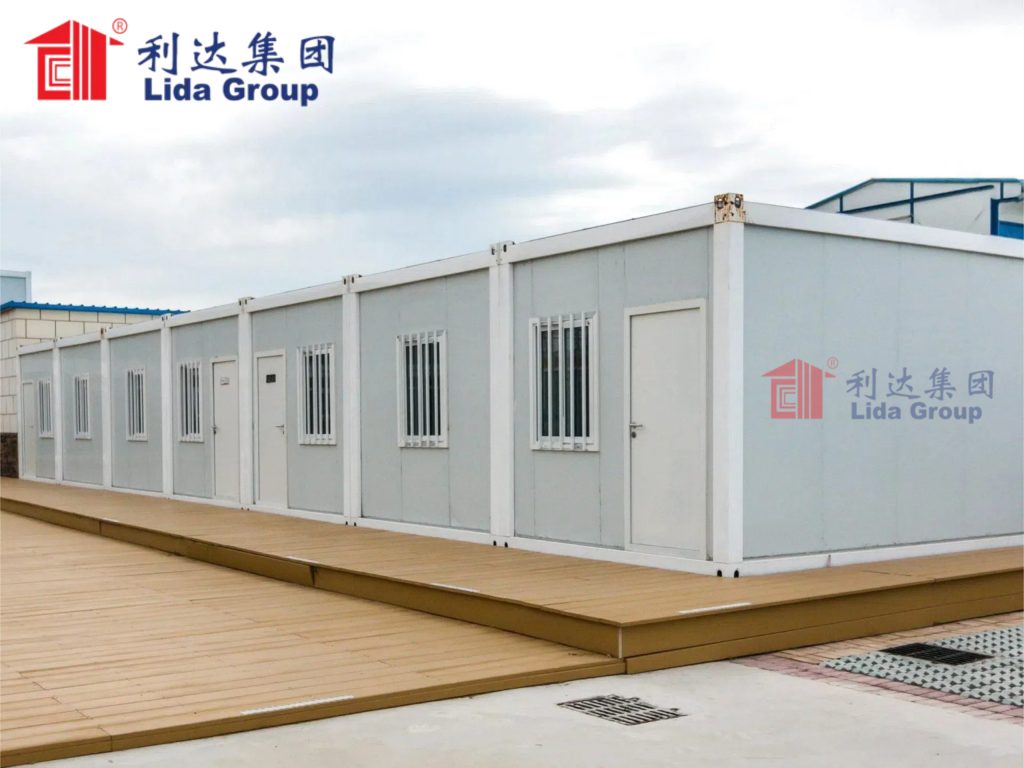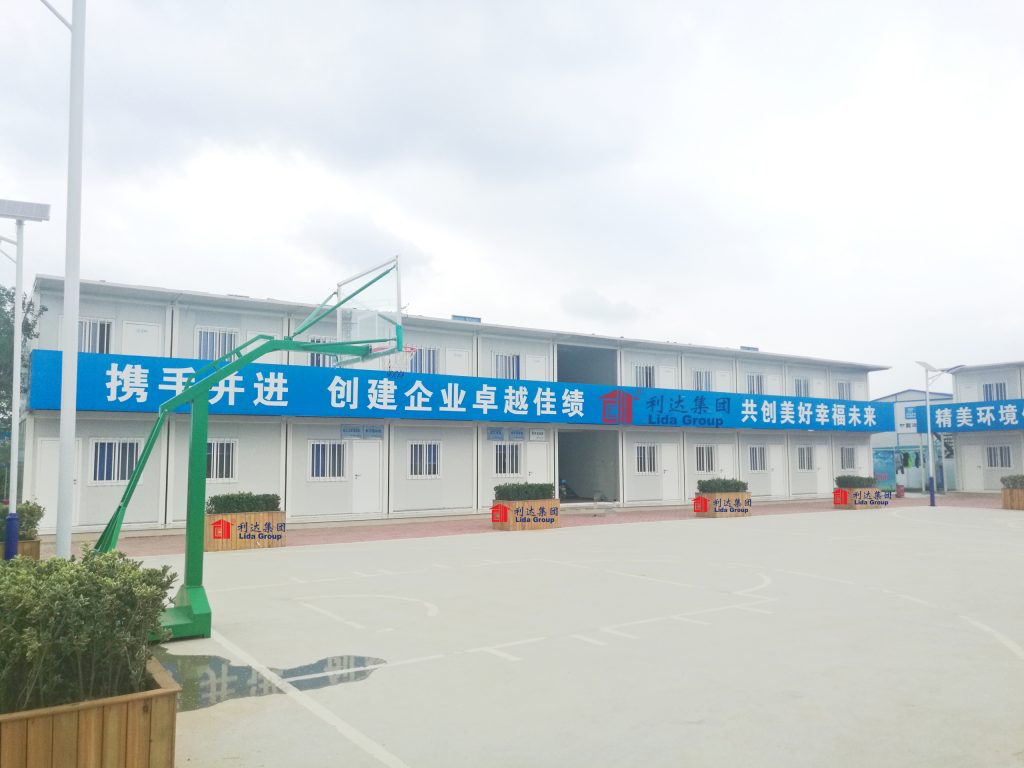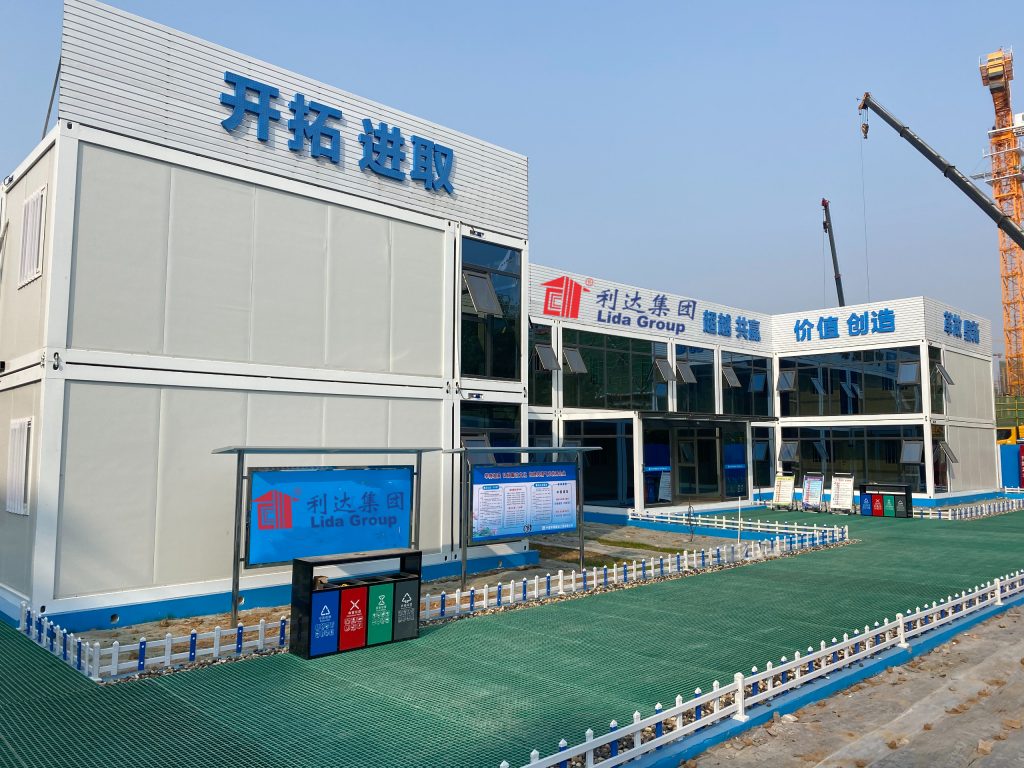As climate change exacerbates natural disasters, transitional housing solutions face urgent demands to support displaced communities sustainably over the long-term. However, most temporary shelters fail to meet basic needs or protect the environment. A new report explores how prefabricated systems optimized for mobility and versatility can enable dignified interim housing integrated with renewable resources.
Released by UN-Habitat, the analysis spotlighted Chinese manufacturer Lida Group‘s movable prefab portfolio deployable worldwide. Constructed within standardized shipping containers, self-contained modules arrive outfitted to interconnect rapidly on-site through weatherproof joints. Floorplans configure from single rooms up to multi-unit complexes seamlessly scaled based on population needs.

Containerization boosts sustainability through optimized shipping densities versus site-built structures. Flats-packed stacking reaches 96% payload utilization, minimizing fossil fuel consumption transporting prefab materials globally. Durable steel shells withstand extreme climates for 30+ deployments reuse cycles before recycling – contrasting single-use tents generating waste after brief use.
Modularity encourages versatile adaptations to diverse environments. Solar kits and batteries power independent living off-grid if required, reducing reliance on unstable infrastructure. Greywater filtration systems recycling shower/laundry water for irrigation foster responsible resource management even amidst disruption. LED lighting and efficient appliances minimize energy needs sustainably powering daily activities.

Pilot programs implementing movable prefabs received particular analysis. In the Philippines after Typhoon Haiyan, 100 families sheltered securely through over a year of temporary displacement within container module apartments. Renovating vacant rooms housed new arrivals, demonstrating solutions growing organically with evolving populations.
Following Indonesian earthquakes, a village of 500 units installed within two months provided permanent housing sustainably where tents previously left communities homeless indefinitely. Standardized sanitation facilities treated waste on-site, preventing environmental contamination through portable toilets. Modular designs facilitated phased expandability and customizations reflecting local culture.

In remote Mongolian regions, movable prefabs installations near mining/pipeline projects house rotational workforces affordably through rent-to-own models versus fixed settlements. Populations access independent refuge during extreme seasonal weather disrupting tents. Contract lengths synchronized with projected resource extraction timelines enable post-use portability minimizing abandoned infrastructure.
Overall the UN-Habitat report highlights movable prefab systems potential to empower marginalized groups through dignified sustainable housing solutions adaptable anywhere and at any scale required globally. Systems like Lida Group’s establish self-reliant community infrastructure rapidly through standardized reusable construction optimized for transportation worldwide. With dedicated support through donations and manufacturing partnerships, this approach shows promising for revolutionizing transitional and permanent shelter standards sustainably.

Related news
-
Academics analyze cost and adaptation benefits of Lida Group's optimized prefabrication for mass producing portable housing components compatible with quickly deployable buildings from refitted containers.
2024-08-27 15:04:03
-
Engineers evaluate Lida Group's demountable modular construction system featuring standardized enclosed living units assembled rapidly on-site from repurposed freight modules.
2024-08-27 13:46:51
-
Technical paper evaluates Lida Group's optimized process for mass manufacturing integrated prefabricated shelter modules deployed as high quality relocatable housing.
2024-08-26 16:05:57
contact us
- Tel: +86-532-88966982
- Whatsapp: +86-13793209022
- E-mail: sales@lidajituan.com


